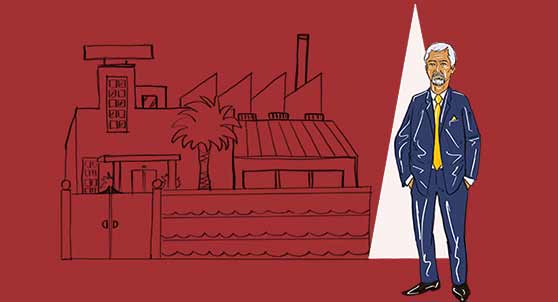
Collecting, distilling, and actioning local risk and resilience perspectives

Integral World is dedicated to safeguarding the planet and promoting sustainable practices to address environmental challenges. Through our focus on the SDGs, we actively strive to preserve ecosystems, combat pollution, and mitigate the impacts of climate change. Our ultimate goal is to foster a harmonious relationship between humanity and the planet, ensuring a sustainable and resilient future for all.
To fulfill our commitment, Integral World can play a crucial role in environmental conservation and sustainable resource management. We prioritize raising awareness about pressing environmental issues, advocating for renewable energy, and promoting sustainable practices in various industries and communities. By initiating and supporting projects such as reforestation, waste management, and conservation efforts, we actively contribute to the protection of ecosystems, the mitigation of climate change, and the preservation of our planet’s long-term well-being.
Integral World recognizes the immediate need for environmental stewardship and actively works toward the adoption of sustainable practices. We actively support initiatives that conserve natural resources, promote the use of renewable energy sources, and mitigate the effects of climate change. By conducting impactful awareness campaigns, organizing environmental education programs, and implementing robust conservation projects, we strive to protect biodiversity, reduce pollution, and ensure the long-term health of our planet. Through collaborative efforts with communities, organizations, and governments, we aim to foster sustainable development that respects and preserves the environment for generations to come.
Integral World recognizes the significance of SDGs 11 (Sustainable Cities and Communities), 12 (Responsible Consumption and Production), 13 (Climate Action), 14 (Life Below Water), and 15 (Life on Land) in preserving the planet and achieving sustainability. Here’s an elaboration on how Integral World can contribute to each of these goals:
Integral World can work towards creating sustainable cities and communities by promoting urban planning that emphasizes environmental sustainability, resilience, and inclusivity. This can involve supporting initiatives that enhance access to affordable housing, promote efficient and sustainable transportation systems, and improve urban infrastructure. Integral World can advocate for policies that prioritize green spaces, sustainable waste management, and the preservation of cultural heritage. By collaborating with local communities, governments, and organizations, Integral World can contribute to the development of livable and sustainable cities and communities.
Integral World can encourage responsible consumption and production patterns by promoting sustainable practices in various sectors. This can involve advocating for circular economy principles, reducing waste generation, and promoting eco-friendly production processes. Integral World can support initiatives that promote sustainable sourcing, responsible manufacturing, and the use of renewable materials. By raising awareness, providing education on sustainable consumption, and collaborating with businesses and consumers, Integral World can contribute to a shift towards more sustainable consumption and production patterns.
Integral World can actively contribute to climate action by supporting initiatives that reduce greenhouse gas emissions, promote renewable energy, and enhance climate resilience. This can involve advocating for policies that mitigate climate change, supporting renewable energy projects, and promoting energy efficiency measures. Integral World can collaborate with governments, organizations, and communities to raise awareness about climate change, support climate adaptation and resilience programs, and facilitate knowledge sharing on climate solutions. By taking concrete actions to reduce carbon footprint and promote sustainable practices, Integral World helps combat climate change and protect the planet.
Integral World can contribute to the conservation and sustainable use of marine and coastal ecosystems. This can involve supporting initiatives that protect marine biodiversity, reduce marine pollution, and promote sustainable fishing practices. Integral World can collaborate with local communities, organizations, and governments to establish marine protected areas, implement sustainable coastal zone management, and raise awareness about the importance of ocean conservation. By advocating for responsible ocean governance and supporting initiatives that restore and preserve marine ecosystems, Integral World helps safeguard life below water.
Integral World can work towards preserving terrestrial ecosystems, promoting sustainable land use, and combating desertification, deforestation, and biodiversity loss. This can involve supporting initiatives that protect forests, restore degraded lands, and promote sustainable agriculture practices. Integral World can collaborate with local communities, organizations, and governments to establish protected areas, implement sustainable land management practices, and raise awareness about the value of biodiversity and ecosystems. By supporting conservation efforts, promoting sustainable land use, and advocating for policies that protect and restore ecosystems, Integral World contributes to the preservation of life on land.
Because we all share this planet earth, we have to learn to live in harmony and peace with each other and with nature. This is not just a dream, but a necessity.

We help establish and act towards maximising the positive impact

We encourage you to look at the conscious side of capitalism

We empower our representatives to transform the system for good

We endeavour to help establish longlasting legacy

We enable you to root extensively and nourish all

Strategise
We are adept at aligning with your thoughts

Outreach
We can lead you in the right direction to rightful space

Action
We strive to steer you on a
steady course